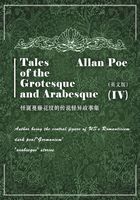When the dawn came I dressed thoughtfully enough. But life must go on and even the sadness of self-knowledge cannot come wholly between a man and his stomach!
The passenger saloon was deserted except for little Pike. He sat under the window, his arms folded on the table, his head on them. I thought he was drunk again but as I entered he looked up, smiled sleepily, then put his head down. So there was another cabin in which people found it difficult to be at ease! I got myself a mug of small ale from Bates—there was nothing else to have—and drank "breakfast" quite in the antique manner. I went back to my hutch and got into my oilskins and seaboots and was about to go into the waist but saw old Mr Brocklebank standing there in the shadow of the larboard main chains. He had usurped my place. I sat in my canvas chair then, all oilskinned as I was, and surveyed my few books on the shelf at the end of the bunk. I remembered Charles and his gift of the slops that I was wearing. I took down the Iliad, therefore, and read in book zeta the story of Glaucus and Diomede. They had exchanged armour recklessly, it seemed, trading bronze armour for gold. I could not decide whether my determination to see Charles promoted was gold or bronze—certainly his care of me, getting me bathed and changed as if he were my old nurse, was gold in the circumstances! I read on but soon found the words drifting apart. It had been a short and troubled night. I remembered that Charles had told me not to wear my oilskins except to keep myself dry so I put the book back and went out to the waist. Mr Brocklebank had gone. I stayed in the lee of the main chains to allow the wind to freshen me.
Mr Benét came briskly out of the lobby.
"Well, Mr Talbot, we get on!"
"This weather is still too lively to allow you to tamper—I should say to mend, the foremast?"
"For the time being. But the wind moderates. And fortunately the movement does not prevent Coombs from making charcoal."
"Stay, sir. A moment. I have heard that in an emergency masts may be cut away."
"You have been speaking to the first lieutenant!"
"Indeed I have, but he said nothing of that. It is my own idea—cut away the foremast and you save yourself the risk of mending the shoe! I do have occasional ideas, you know."
"I am sure you do, sir. But if we cut away the foremast we should probably have to cut away the mizzenmast to balance things. Nor do masts fall precisely where you mean them to. Imagine the foremast going over the side, still tethered to the ship, and dragging her round so she broached to! We might be overset and swamped in seconds. Bravo, Mr Talbot, but no, sir. That will not do. The moment it is possible we shall crimp the shoe and draw it together. Bite your nails a watch or two longer."
I did not like his tone but there seemed nothing I could do about that. However, we did have interests in common—
Benét was moving away. I hastened after him.
"I had meant to ask you, sir, to explain a certain episode in which you and Lady Somerset and Miss Chumley—"
"Later, Mr Talbot. Oh, this weather! It makes a man want to sing!"
He ran swiftly along the deck and vanished into the fo'castle between one roll and the next. Charles emerged from the lobby. A petty officer and two seamen came with him. He paused when he saw me.
"Well, Edmund?"
"A bad night, I am afraid."
"There is little colour in your face. Are you feeling the motion?"
"No. I have had a bad night, that is all."
"You could return to the wardroom."
I felt myself flushing, for it was evident that he understood something of my "bad night".
"And be laughed at? No."
"In discomfort and danger people are glad of something to laugh at."
"So we are still in danger?"
He turned to the petty officer and gave him an order. The man knuckled his forehead and the little party cantered—doubled, I suppose I should say—along the deck to the fo'castle.
"Yes, Edmund. We are in the same danger as before."
"At least the weather is improving."
"My dear fellow! This is a pause and will give Benét time to tamper with the foremast. I do not like the look of the weather. There is something big up there which will search us out. Well, I must get on."
"Let me come with you."
"No no. You cannot. My rounds are not for you."
He saluted in the naval manner and went forward along the deck. The lifelines were not so much bouncing now as vibrating gently. Charles ignored them.
"Mr Talbot."
I turned. Miss Granham, in slops and seaboots too big for her, was standing in the entry to the lobby.
"Good morning, ma'am. What can I do for you?"
"I wanted to call you to Mr Prettiman. Is the time convenient?"
"To visit him? Of course, ma'am, whenever you wish."
She opened his door a crack, looked in, then shut it again.
"He has fallen asleep again. It is the paregoric. Perhaps—"
She seemed doubtful. But I could see no reason for delay.
"May I not go in and wait?"
"If you wish."
I entered Prettiman's cabin and pulled the door to behind me. The cabin was like all the others, a bunk, a shelf for books, a canvas washbowl with a small mirror over it and, at the other end, a writing flap with the usual accoutrements. There was a bucket under the washbowl and a canvas chair before the writing flap. Mr Prettiman had signalled his eccentricity by sleeping the wrong way round—his head was towards the stern, his feet towards the bow. His head was, in consequence, just above the bucket, which may have been his original intention in sleeping that way round. Certainly I had vivid and miserable memories of our first weeks in the ship and the nausea which had overcome me and the other passengers.
Prettiman was so deeply asleep that it was hard to believe he had been awake that morning. The air was thick, as must be the air of all sickrooms, I suppose, since fresh air is so deleterious to a troubled body. Though it was not to be thought that our ladies, accustomed as they must be to the treatment of childish ailments, would leave the sufferer unwashed, there was a distinct odour emanating from the man which made a close approach to him distasteful. I realized with a resigned determination that I was in for an unpleasant enough experience. However, I daresay that the hardly describable events of the night had made me a little more aware of my offhand ability to spread destruction! I sat down cautiously, therefore, with a vague feeling that as long as he slept I was doing what Miss Granham required by being present. The odour from his body strove with another which I had no difficulty in identifying as paregoric, or laudanum. No wonder he slept. The bedclothes were pulled up to his neck. His bald head was dinted into a pillow far softer than the one which had been provided for me. His face above the tawny beard and scanty fringe of hair was very pale. It was a face I had seen often enough comically reddened by passionate anger. This mask of flesh and bone on which his emotions were so often played out for all to see was irregular enough. The tilted nose was as far from his long upper lip as that of a stage Irishman, a Paddy. His mouth was wide and firm, so that the lines of determination as well as anger were engraved there. Sickness had wasted his flesh and removed a great deal of the comedy. Those eyes which could glare in all the madness of social bigotry were veiled by dark lids and sunk deep under the frantic eyebrows. It was perhaps possible to laugh at the waking man. But this effigy, stretched as on the slab of a tomb, had nothing of the laughable. Where was ludicrous Prettiman, opinionated, sometimes frantic, indignant beside his unlikely fiancée? But she had suffered a like sea change without the trouble of a fall, a severe spinster, now seen to be handsome, dignified and sensible—and feminine! Why, the man himself—there came a ninth wave in our diminishing weather, for the cabin lurched. That same cry which I had heard when I was awake in the cabin off the wardroom—that cry which had drawn me forth—the anguish—woe—I sprang to my feet. It was not to be borne. I saw myself condemned to sit in this stink and be exacerbated time after time as the man woke and that cry burst out! I seized the door handle—
"Who is it?"
That was a feeble voice behind me. I turned.
"It is Edmund Talbot."
The man was sinking down in stupor again. I was exasperated. And I had said I would wait. Yet only that night I had known, found out what I bore in my hands! I sank down into the canvas chair again. The bedclothing was massed about his middle and hiding the lines of his body there. Lower down, his legs and feet lifted the blankets. The odour of paregoric was more perceptible since his cry. The spirit which had half-awakened in the tormented body had sunk away again into the depths. The eyelids fluttered and were still. The mouth fell open, but this time a sigh was all the sound he made.
I leaned back and surveyed him as he lay in the bunk. Under their lids his eyes moved rapidly from side to side. His breath came unevenly, he panted. I thought his eyes would open but they did not. He muttered in his sleep or swoon. The words dragged out.
"—John Laity for the term of his natural life. Hamilton Moulting Baronet as colonel light dragoons emoluments from clothing—expenses of the returning officer—Mungo FitzHenry master in Chancery for life four thousand and six pounds—"
Good God—it was my cousin and that superb plum! What the devil did this man mean by it? I leapt to my feet. I seized the door handle—and felt it turn from the outside. Miss Granham looked in. She whispered:
"Mr Talbot? Not yet awake?"
"No."
That same feeble voice again.
"Letitia? Is that you?"
"It is Mr Talbot come to see you, Aloysius."
"William Collier fourteen years for illegal assembly—"
"It is I, Mr Prettiman, Edmund Talbot. I am told you wish to see me. Well, I am here and waiting."
Behind me Miss Granham closed the door.
"Letitia?"
"Miss Granham has stepped outside. She supposed you wanted to speak to me, though what I have done to deserve such an unexpected honour—"
He was turning his head restlessly and gritting his teeth.
"I am not able to sit up."
"Do not incommode yourself. I am able to stand here and you are able to see me."
"Sit down, boy. Sit down!"
The man intended an order, there was no doubt about that. I wish I could say that I sat to humour a sick man but the truth is my body sat itself down before I was aware of what was happening! A slight movement of the cabin made him grit his teeth again and audibly. His face cleared little by little. I spoke abruptly, annoyed by my involuntary obedience.
"As I said. I am waiting to hear what you want."
"You are aware that Miss Granham and I—"
He was silent again. I did not know whether he was interrupted by some pain or whether he felt a natural embarrassment at raising the subject with a stranger. I thought it best to help the sick man where I could, otherwise this irritating interview would be more and more prolonged.
"I am aware as everyone else in the ship is that the lady has consented to make you the happiest of men. I have already felicitated the lady, I believe. Permit me to congratulate—"
"Don't smother the thing in nonsense!"
"I beg your pardon, sir!"
"She has agreed to marry me."
"That is what I said!"
"Now, I mean. Where are your wits?"
"We have no clergymen!"
"Captain Anderson will perform the ceremony. Do you know nothing?"
I was silent. Clearly the shortest way to the end was to listen and not interrupt. Mr Prettiman passed his tongue over his lips, then smacked them.
"Would you like a drink? This water—"
Now he turned his head and looked straight at me, examining my face as I had examined his. A trace of a smile, wintry enough, deepened the creases round his mouth and eyes.
"Unfair, amn't I?"
I grinned, however ruefully, at this sudden turn round.
"You're having a devilish bad time, that's what it is. Anyone—perhaps when the weather is better you could get out—"
"I am dying."
"But, Mr Prettiman! A fracture—"
He shouted aloud.
"Will you abstain from this foolish habit of contradiction? When I say I am dying I mean I am dying and I am going to die!"
The end of this shouted exordium was confused by another cry from the depth of his agony, which I am persuaded that time he inflicted on himself by some forbidden movement. The cry was not only the expression of despairing anguish but of furious resentment.
"Mr Prettiman, I beg of you!"
Once again he lay silent, but perspiration trickled down his face. Behind me the door opened and Miss Granham looked in again. She stepped over the sill, reached under his pillow, took out a handkerchief and wiped his face. A smile returned to it. In a far softer voice than he had used to me he murmured, "Thank you, thank you."
As Miss Granham was withdrawing he spoke again.
"Letty, there is no need for you to stand on guard. I am well enough and the dose still gives me some relief. Please return to your cabin and try to sleep. I am sure you need to. It frets me to think of you keeping yourself awake for my sake."
She glanced at me, then smiled at him, nodded and closed the door behind her.
"Mr Talbot, I wish you to be a witness."
"I?"
"You and Oldmeadow. To the ceremony—the marriage."
"That is ridiculous! We have no official standing in the ship! Charles Summers, on the other hand, or Mr Cumbershum—I will give the bride away if you wish or—why anything!"
"You are not needed to give the bride away. Mr East will do that."
"Mr East? The printer?"
"Will you listen? Or do you propose to prolong this interview indefinitely?"
There were many replies I could have made to that remark but in choosing the best I missed the opportunity. He had closed his eyes and now went on speaking.
"The officers of the ship will be distributed round the world. Who knows where they will go? In any case, they are at risk. Certainly this old ship will carry them no farther. You and Oldmeadow will remain at Sydney Cove. Do you not understand, Mr Talbot? Modest as it may be, Miss Granham will inherit my fortune. But without unimpeachable witnesses and at a distance of eighteen thousand miles from our courts, corrupt as they are—"
"No, they are not! That is outrageous! British justice—"
His eyes had snapped open.
"I say they are! Oh, in respect of money you may rely on them, but they are corrupt in all else by privilege, by land tenure, by a viciously inadequate system of representation—"
All this had been uttered on a rising note. But as if the man knew how close to him was the angel of the agony he lowered his voice suddenly in a way which might have seemed comic to me only a few minutes before.
"I need not go into all that, Talbot. After all, I am talking to a representative of—well, there. To resume: you and Oldmeadow will be guarantors of her inheritance by virtue of your position as witnesses of the marriage."
"I shall be happy to serve the lady in any way I am able—" It came to me, as I said that, that it was true! "Yes indeed, sir. But I trust it may be many years before—"
The trace of hectic had appeared in his cheeks.
"Do not talk nonsense! I have not many days or perhaps hours left."
"The banns—"
"They may be omitted in these circumstances. Let that be an end of the matter."
We were silent for a while. Then he stirred restlessly. I had half-risen from my seat but he held up his hand.
"I have not finished. I do not care to ask for favours. But now—"
"You may, sir. For the lady's sake."
"Mr Summers told me that you claimed at least to believe in 'fair play'. The phrase is juvenile—"
"The phrase is a good phrase, Mr Prettiman. What is 'fair play' in the slang of schoolboys is 'justice' among adults."
"You believe in justice."
There was another pause. I glanced at the shelf of books above his head. They were severe.
"I am an Englishman."
"Miss Granham has reported favourably on your progress—"
"My what?"
"I do not know how civilized the mores of a colony may be but I suspect the worst. I fear civilization may be sadly to seek. I ask you to see that the lady is treated as she should be in a civilized society."
"I would count her friendship a privilege, sir. I give you my word I will use every endeavour to protect her."
He smiled wearily, for his strength was ebbing.
"There are many ways in which she does not need protection. But in some things a lady by the unfairness of Nature will always be at a disadvantage. I believe the colony may not yet have accustomed itself to the proper attitude to the female nature."
"I do not know."
"One other matter."
I waited for some time but he was silent.
"Another matter, sir?"
He said nothing but seemed in some discomfort.
"May I not move you to a more comfortable position, sir? This mass of bedclothes round your waist—"
He was moving his head restlessly on the pillow.
"It is not a mass of bedclothing but a gross swelling of the lower abdomen and the upper part of the lower limbs."
"Good God! Good God!"
"Must every other sentence commence with an imprecation? You cannot move me. To move my body even for the most necessary purposes is a torture which is wearing me out and down, down and away."
He was silent again for a while. Then—
"This other matter. It is confidential. I have searched my conscience and believe that what I do is right. Come close."
I took my staying hand off the bulkhead and hitched the canvas chair to the bunk. I leaned my head down to his. The odour of the bunk and his body was quite plainly unpleasant. Was this the awful beginnings of decay? I was not well informed in the matter.
"I have a paper for you."
"Oh?"
"It is a paper signed by me. You see what a case I am in, helpless and dying. People will contest the will—there are always such, relatives so distant they have never before made themselves known. They might well bring a case that the marriage was not—could not—be consummated, that it was void and consequently the lady entitled to nothing."
There ensued a long pause.
"I do not follow what I am to do, Mr Prettiman."
He seemed in much discomfort.
"I have written a plain declaration that I have had carnal knowledge of the lady during the voyage and before the marriage."
"Good—"
"You were about to say, sir?"
"Nothing. Nothing."
His voice was a shout.
"Do you think, boy, that a superstitious rite such as a wedding ceremony means anything to such people as I and she are?"
My mouth was opened to speak, though I do not know what I should have said. For his anger was such that he had hurt himself all over again. He positively howled with pain, as if he were being punished for his blasphemy! I find the recollection amusing enough. For I did not believe in any of the superstitious rites myself and regarded them as serving to keep order. Christening, marrying and burying—they are the marks which distinguish men from beasts, that is all.
But the man was recovering.
"There is a green leather case in the upper drawer. Give it to me, if you please."
I did so. He held it to his chest, took out a folded and sealed paper which he held up close to his eyes.
"Yes. This is it."
"Why is the paper necessary? I could as easily stand before a court and swear that you had told me how matters stood between you and the lady."
"I do not trust them—that is all."
It was on the tip of my tongue to speak like a moralist! I felt like saying with all the force at the command of a member of the society which he despised—"You should have thought of that before!" Or—"The superstitious rites are then of some value, sir!" But I did not. This was all the odder, since I felt myself more and more out of sympathy with him and her—with her in particular. A lady, and one whom I had held in some esteem to behave so, like a drab! I did not know whether to laugh or what to do. She was provoking. It was very sad. Her—lapse made me sad and angry.
"I believe, Mr Prettiman, we have no more to say to each other. I presume I shall be told when the superstitious rite is to take place?"
He turned his head and looked at me in what seemed to be surprise.
"Of course!"
I put the green leather case back in the drawer and stood up.
"I agree to guard this paper and produce it in the circumstances which you envisage. I have no desire to read it."
"Thank you."
My bow was hampered. I had not got the door open when he spoke again.
"Mr Talbot."
"Sir?"
"Miss Granham is unaware of the existence of this paper. I wish her to remain so for as long as possible."
I bowed again and stumbled out of that fetid hutch.















